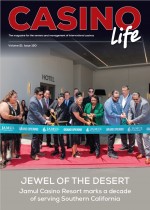Gibraltar
Gibraltar, as a British overseas territory, offers one of the world’s most reputable gambling licenses. It is governed by strict and independent regulations that attract leading operators.
The jurisdiction is known for its high standards and strict requirements, as reflected in the fact that only around 30 companies have successfully obtained a license in the territory. Licensed entities are required
to have a “substantive presence” in Gibraltar – which means that licensees must maintain a physical office, qualified staff and relevant infrastructure (e.g., servers) within the jurisdiction.
The primary legal framework governing gambling in Gibraltar is the Gambling Act 2005. It regulates both remote and land-based gambling operations. Since 2022 there have been ongoing talks and consultations
on the new draft, which would primarily revise the existing licensing fees. There is also a strong focus on maintaining trust in the gambling market, protecting consumers, encouraging fair and responsible gambling, preventing criminal links, and in protecting Gibraltar’s public interest and reputation.
The minister responsible for gambling is the gaming-license-issuing authority. The Gambling Commissioner (i.e., the Gibraltar Regulatory Authority) is granted powers to ensure that licensees conduct their operations
in accordance with their licenses and maintain the good reputation of Gibraltar.
Currently there are six available types of license in Gibraltar: (i) Remote Gaming B2C Operator (online casino); (ii) Remote Betting B2C Operator (online bookmakers and organizations); (iii) Other Remote B2C Gambling Products (betting intermediaries); (iv) Non-Remote B2C Gaming Operator (land Casinos) (land-based casinos — slot machines and platforms); (v) Non-Remote B2C Betting Operator (land-based bookmaker) (ground bookmaker, lottery); and (vi) Gambling B2B Support Services. Each respective license is issued for a five-year term with the possibility of renewal.
The application process is straightforward but quite strict and formal, which ensures that all licensed entities are fully compliant. Licensing times can vary. However, a well-prepared application that fully addresses ownership, management, governance, a clear business plan and policies on anti-money laundering, terrorism prevention, data protection, and consumer protection can be processed fairly quickly (within two to six months from filing of a complete application).
As already noted above, there are envisioned amendments to the Act, but since 2022 there have not been any new developments in this field. The focus will most likely remain on strengthening player
protection, enhancing transparency, reinforcing the requirement for a substantive presence, and generally improving regulatory integration and cooperation.
Malta
Malta is known for its robust and business-friendly regulatory environment, making it a popular hub for online gambling companies. Malta’s reputation as a focal point for the gaming industry is built on decades of strategic legislation and forward-thinking regulatory frameworks.
Even though it is viewed as a traditional society, already in the 1960s the country regulated lottery games in the territory. Such a pioneering approach could have been clearly seen in 2001, when Malta transformed global gambling by becoming the first EU country (becoming a a member state in 2004) to regulate online gambling with the Lotteries & Gaming Authority Act. As in other territories with extensive experience in the industry, licensed operators must have an established presence in Malta, including physical offices and key staff.
The current Gaming Act came into force in August 2018, replacing the previous laws that separately regulated land-based casinos, cruise-ship casinos, lotteries, remote gaming, and other games like bingo and gaming halls. This act is supplemented by various subsidiary legislation and regulations, including the Remote Gaming Regulations & Gaming Authorizations Regulations. The new Act combined all these gaming activities into one law and established the Malta Gaming Authority (MGA) as the single regulator responsible for overseeing them.
Malta’s licensing system follows an “open window” approach, meaning the MGA can grant unlimited licenses and operators can apply any time. The only exception is the National Lottery license, which is limited to one and awarded through a special tender process.
In line with ongoing developments in the entire regulatory environment (which included enhancement of audit and compliance procedures, updated oversight and player protection controls), in 2024 the licensing system itself became even more straightforward. It is now based on simply having a distinction between a B2C and B2B license. The structure of the remote gaming license is based on a “umbrella” concept whereby, under a B2C or B2B license, the licensee can add or remove different gaming activities with ease – provided that regulatory approval is provided by the MGA. Licenses are valid for a term of 10 years and are renewable subject to ongoing compliance and a renewal process.
Operators based outside Malta, but licensed in the EEA or another approved country, need a Recognition Notice to offer services in or from Malta. The notice lasts one year and can be renewed. Malta’s gaming rules apply equally to all types of technology, so it does not matter if games are offered online, on mobile or through other digital platforms.
As the gaming industry is a key sector in Malta, local courts have developed significant expertise in handling cases related to licensing and other regulatory matters. A notable example is a February 2025 ruling by Malta’s Civil Court, which rejected the enforcement of Austrian court judgments against Malta-licensed operators. The judgments had ordered TSG Interactive Gaming Europe Ltd and European Lotto & Betting Ltd, both licensed by the MGA, to refund losses to Austrian players. The Austrian courts had found the contracts invalid under Austrian law, as the operators did not hold local licenses, and ruled that the players were entitled to refunds. However, the Maltese court declined to enforce these rulings.
Mauritius
The gambling sector in Mauritius is governed by the Gambling Regulatory Authority Act (GRA Act) No. 9 of 2007. The competent authority in the territory, the GRA, operates under the Ministry of Finance, Economic Planning & Development and is administered by the Gambling Regulatory Board. The GRA acts as the sole regulatory authority (with a specialized horse racing division), ensuring integrity, compliance and consumer protection.
The licensing regime includes the following types of licenses: (i) land-based gaming licenses; (ii) betting licenses; (iii) horse racing licenses; (iv) lottery and promotional game licenses; (v) online gambling licenses; and (vi) personal and ancillary licenses. Most gambling licenses (including betting, gaming house, online and casino licenses) are issued for a period of one year, renewable annually upon application and continued compliance. The sole discrepancy with this approach is that the national lottery license is typically issued for a longer fixed term through a concession or tender process (e.g., 10 years or more), depending on
the specific terms negotiated.
With respect to online gambling, it is strictly regulated and only licensed operators may offer services to Mauritian residents. Residents are prohibited from accessing offshore gambling sites.
The GRA has the authority to block ISPs, and to order banks and other payment-service providers to block such access. This system is fully enforceable through legal, technological and regulatory measures,
reflecting the GRA’s robust oversight.
Based on publicly available information, currently there are no pending amendments to the GRA Act. Nonetheless, the country’s commitment to aligning with global best practices in the gambling sector
certainly means that improvements may be expected.
































